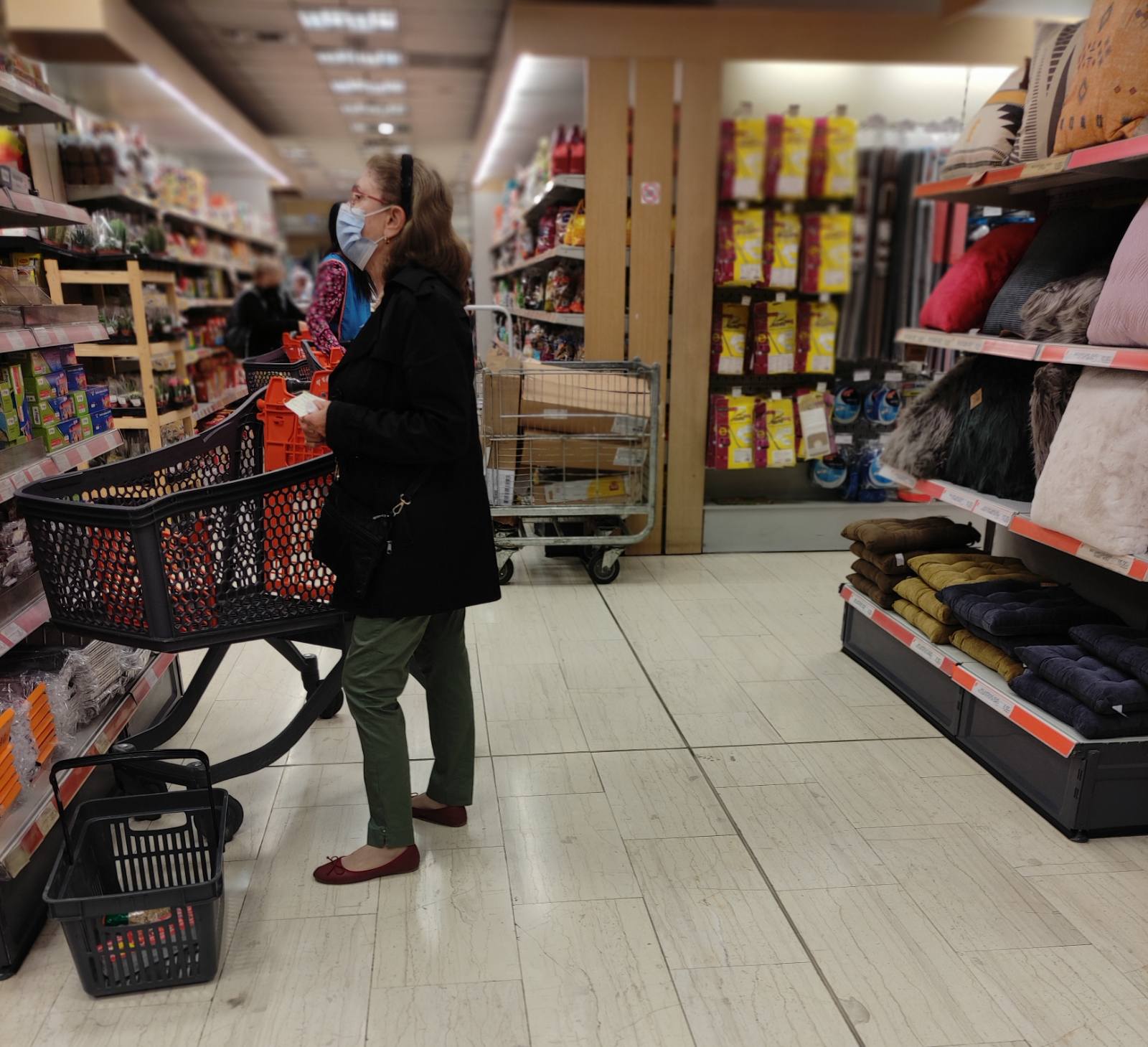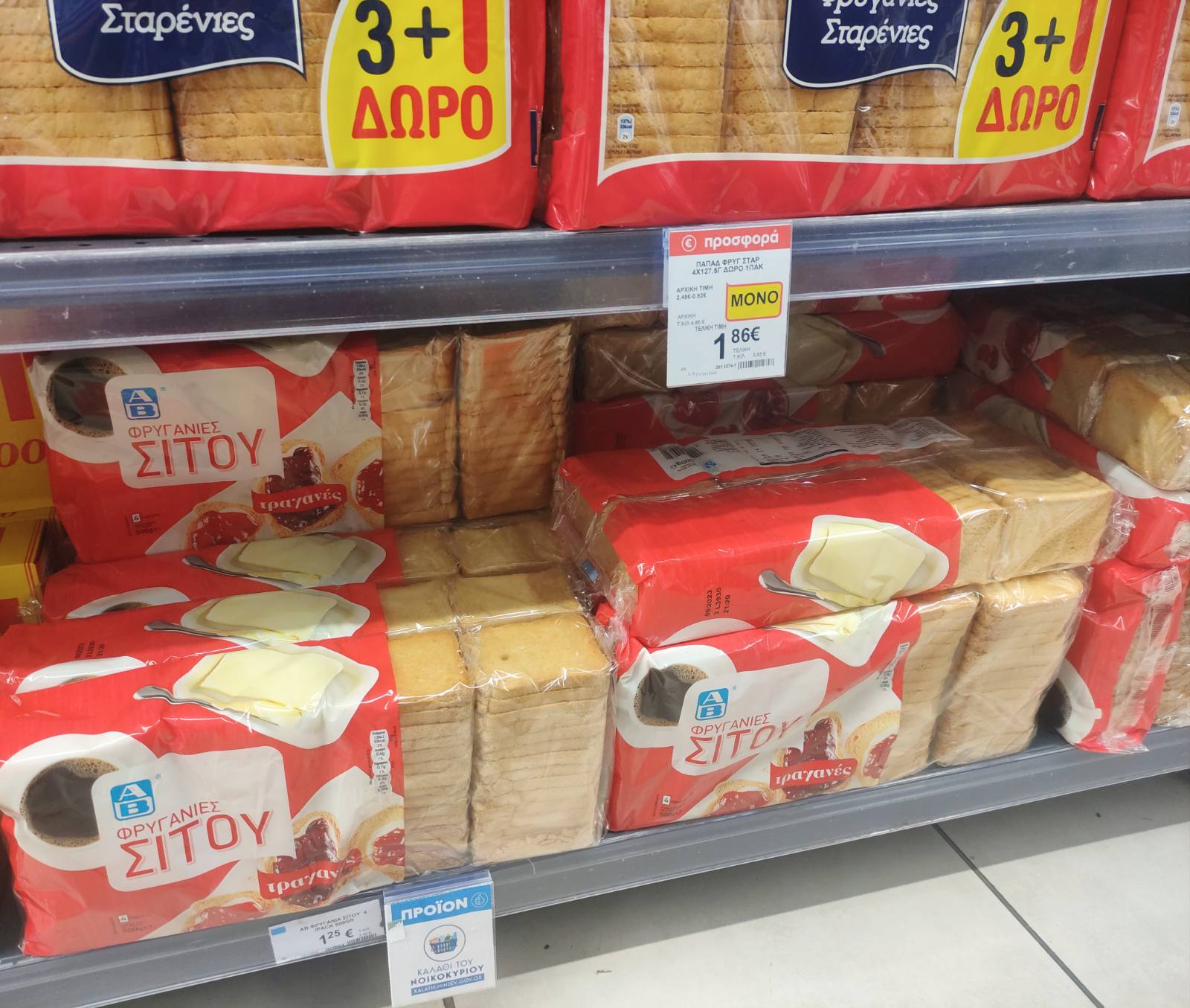
“And how do you know which ones belong to the basket? This is the most common question that can be heard in the aisles of supermarkets today. And employees patiently point out a particular brand that consumers should be looking for on the shelves.
The truth is that on the first day of the implementation of the initiative of the Ministry of Development and Investmentsthe world seems numb and afraid of what to expect.
In all three stores we visited, we didn’t see a sea of people while all the consumers who spoke to us were holding… a small basket compared to what they could find.

In fact, many did not know what this measure would ultimately entail, as they expected a significant reduction in existing product prices.
Most of the products are private label
First of all, what most people who are looking for products with special labels are interested in is whether they are branded.
However, as can be seen from the list posted on a special platform where “basket” products are mentioned in all supermarkets, the vast majority of them are “private labels” (i.e. a trademark owned by the chain).
“The best is always more expensive, right? Will this ancient law of the market change? asks a gentleman in front of the price of a Spaghetti Basket No. 6 (STM) in the first store we visited. Specific spaghetti costs 0.65 cents, while branded ones cost 1.20 euros.
But, as he comments, “That’s what I’ve known all these months when prices … we’re not catching up.” We know the price of supermarket products and that “private label” will always be cheap. The goal was to see if there were any “good” foods on the list. I don’t see this option for spaghetti that I want to keep buying branded ones. The same goes for milk. Of course, I gave up milk and bought it in the supermarket, since the difference with the most expensive one is 50 cents.”
It is noted that in the store of this particular network, 15 out of 51 goods “in the basket” are branded, but this is an intermediate case. Others put most of their private label products in the basket, while some kept the balance closer to 50-50.
Not more affordable, but still affordable
“Yeah, but those eggs aren’t cheaper, so I bought them three days ago.” This is the second comment (each time about a different product) that employees hear in the aisles.
Apparently, many consumers have not fully understood the shopping cart feature. Because they may have been hoping for lower prices on these products, the prices of which have skyrocketed, but what is essentially happening is that supermarkets are committed to keeping the prices of selected products unchanged for as long as the measure is in place, as long as it is. inflation causes a large increase in food prices.
As previously announced, each of the 51 basket product categories has one at an affordable price compared to other codes in the same category. In other words, it is the lowest priced product in its category based on the pricing that each chain does. Supermarket.

Competitive prices for branded products
Interestingly, in all three supermarkets we visited, when people were looking for basket labels, the branded product offerings were really massive and impressive.
From the loudspeakers of a large supermarket in the center of Athens at regular intervals, “See the items in the home basket and many more branded items.”
Source: Kathimerini
James Springer is a renowned author and opinion writer, known for his bold and thought-provoking articles on a wide range of topics. He currently works as a writer at 247 news reel, where he uses his unique voice and sharp wit to offer fresh perspectives on current events. His articles are widely read and shared and has earned him a reputation as a talented and insightful writer.